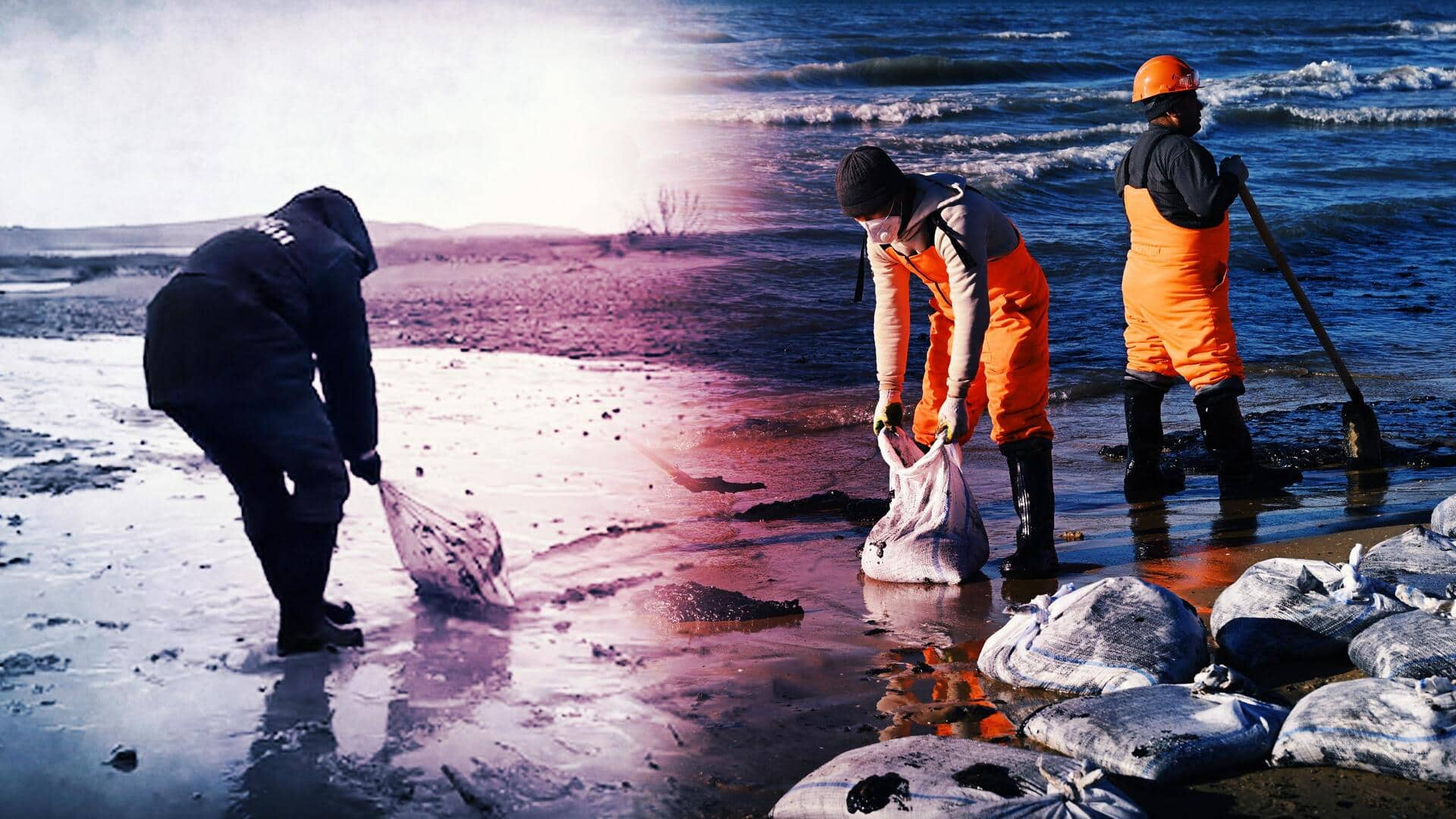
Russian scientists criticize response to Black Sea oil spill
What's the story
Russian scientists have expressed concerns over the poor response to an oil spill in the Black Sea. The incident took place on December 15 when two Russian oil tankers, Volgoneft-212 and Volgoneft-239, were caught in a storm in the Kerch Strait. One tanker sank and the other ran aground, possibly releasing about 40% of their combined cargo of 9,200 tons of fuel oil into the sea.
Equipment shortage
Lack of proper equipment hampers cleanup efforts
In the wake of the spill, thousands of volunteers were deployed to clear oil-soaked sand from nearby beaches. However, Viktor Danilov-Danilyan, scientific head of the Water Problems Institute at the Russian Academy of Sciences, slammed their absence of proper equipment. "There are no bulldozers there, no trucks. Practically no heavy machinery," he said at a news conference.
Environmental threat
Scientists warn of potential environmental impact
Danilov-Danilyan also slammed the use of "shovels and useless plastic bags that rip apart," cautioning that storms could return these bags left on beaches back to the sea. Meanwhile, Sergei Ostakh from the Russian Academy of Natural Sciences cautioned that oil could reach Crimea's shores and called for quick action. The Delfa Dolphin Rescue Centre said 21 dolphins may have died due to the spill, pending further tests to confirm causes.
Cleanup update
Extent of contamination and cleanup progress reported
Russia's Minister of Natural Resources said up to 200,000 tons of sand could be contaminated with oil. By Wednesday, nearly 30,000 tons had been collected, Krasnodar region governor Veniamin Kondratyev said. The Kerch Strait, where the incident took place, separates Southern Russia from Crimea which was annexed by Moscow in 2014.